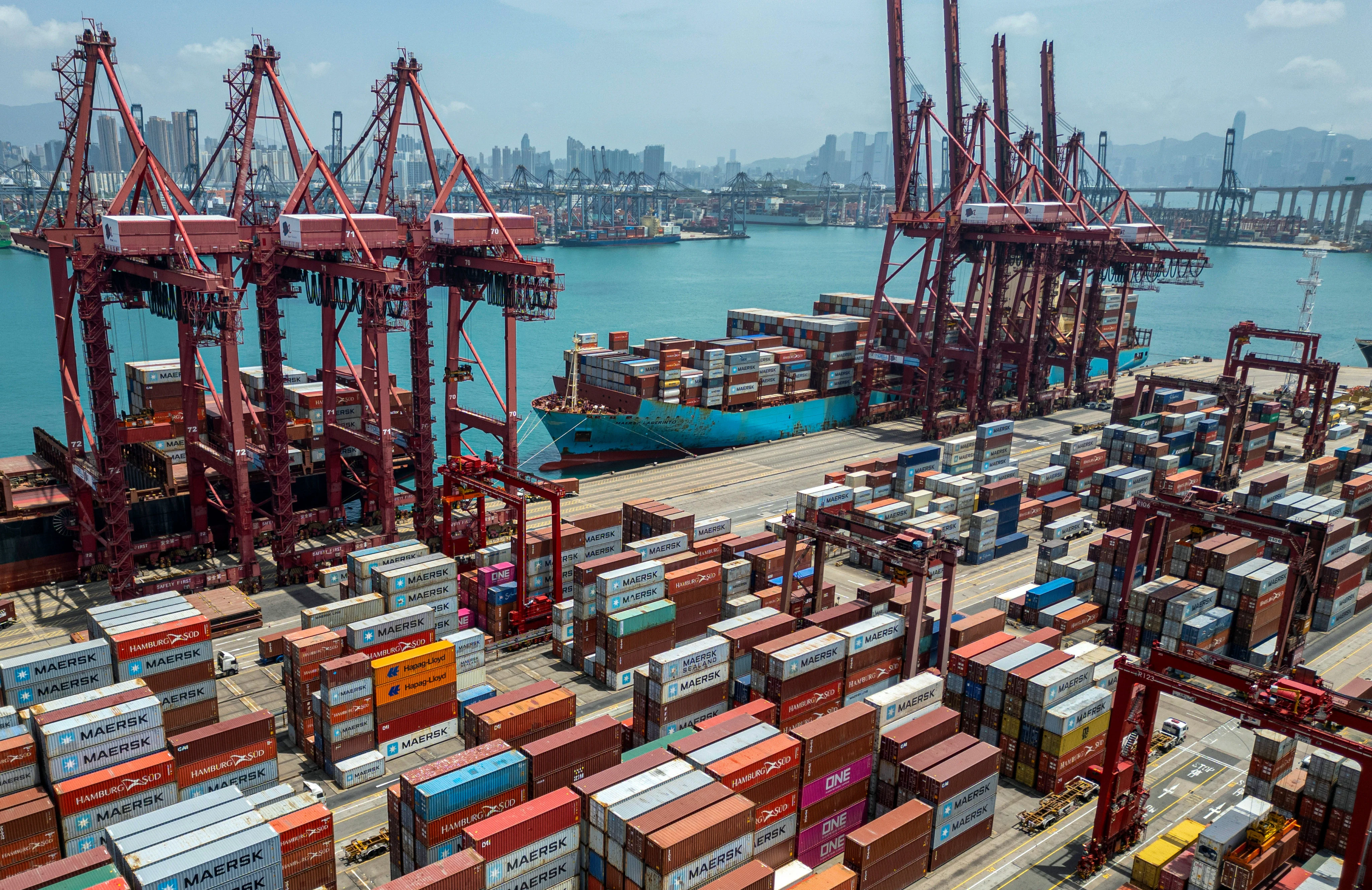By Lam Ka-Sing
A recent surge in Hong Kong’s exports masks a grim reality for frontline manufacturers, with some facing a sharp drop-off in new orders and bracing for renewed pressure on costs as a 90-day tariff truce between Washington and Beijing ends on Tuesday.
Bryant Chan Wan-sing, president of toymaker the Wynnewood Corporation, said the sharp increase in orders during the truce was essentially a reinstatement of ones put on hold or cancelled when tariffs were introduced on US President Donald Trump’s so-called Liberation Day on April 2.
“We have maximised what we can produce and ship during this 90-day window already. Any orders received before Liberation Day that cannot be shipped during the truce will remain on hold for now,” Chan said.
“We are not seeing additional new orders either. So there is indeed a sharp contrast post-truce period, one that is similar to [the] pre-truce period.”
Hong Kong exports surged by 15.5 per cent in May from a year ago, with economists attributing the increase to the front-loading of shipments by businesses racing to beat the deadline.
“Our company remains financially challenged with exposure to material cancellation or orders that continue to be put on hold,” Chan said.
He confirmed he was facing renewed pressure from some clients in the United States to absorb tariff costs, even before the final rates were known.
While the company could offer a small discount as a “gesture of support”, it could not afford to cover the bulk of the duties, he added.
“Ultimately, if sharing the high tariff is the only way to retain the business, then we would rather walk away,” he said.
The United States and China have moved to restore access to critical technologies and high-priority exports.
Some American companies have recently received notice from the US Department of Commerce to resume exports of certain software, ethane, aircraft engines and other products to China. Meanwhile, China has resumed rare earth magnet exports to the US.
To counter the uncertainty, Wynnewood is pushing ahead with diversification plans. Chan said the company had partnered with a factory in Indonesia and expected to make its first shipment by October. But progress on developing new markets in Europe had been slower, as it could take up to two years to secure a first order.
Looking at the second half of the year, Chan said “most companies will remain challenged” while tariff levels remained unknown. He said the key to survival was for manufacturers to diversify into new markets and move up the value chain by designing or branding their own products rather than simply making them for others.
Chan’s on-the-ground experience reflects wider anxiety across the industry, with experts warning of significant risks ahead. They pointed to the repeated use of the US False Claims Act to police customs violations, with consequences far more severe than typical administrative fines.
Andy Winthrop, a senior director in the Asia tax practice at global professional services firm Alvarez & Marsal, said cases could involve “up to treble damages, substantial penalties, lengthy litigation and potentially devastating collateral consequences”.
US customs defined the country of origin for exports as where they underwent “substantial transformation” rather than using a shipment’s point of departure, Winthrop said.
“This assessment is highly technical and often subjective, blending legal, regulatory and manufacturing expertise,” he said.
Henry Chambers, a managing director and co-head of disputes and investigations for the Asia practice at Alvarez & Marsal, said the risk was amplified not only by data analytics used to identify potential fraudulent behaviour or anomalies, but also by a surge in whistle-blower-driven lawsuits, which the US Department of Justice was encouraging.
“All of these mean that the net has been broadened, increasing a company’s chances of exposure, especially those in high-risk sectors and even with unintentional errors,” he said.
While experts were focusing on compliance risks, the city’s main business chamber suggested a broader strategic shift was already under way.
Hong Kong General Chamber of Commerce chairwoman Agnes Chan Sui-kuen said local businesses had already adapted their supply chains following the initial round of tariffs under the first Trump administration.
“Because of Trump 1.0, everyone was already paying close attention … they have already diversified, and their supply chains have been strengthened,” she said.
She framed the current trade environment as a long-term reality for which businesses were already prepared, emphasising the growing importance of the Global South.
“This is a long-term struggle,” Chan said. “Everyone is already mentally prepared for a long-term struggle.”
